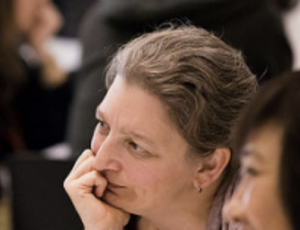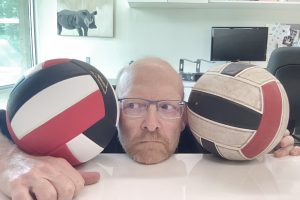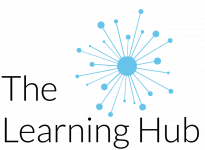
Your source for all things teaching and learning at the JIBC.
June 2022 Vol.2 Issue 5
Course Development: Learning from our Elders
Dave Smulders, Program Manager, Faculty Development
Listen to Dave’s welcome to our newest issue message by clicking play below. If you prefer, there is also a text version of our message. Please enjoy our newest Learning Hub issue!
For this issue, we are looking at the course development process, what happens, how it works, why we should care. This is a core activity of the folks at the Centre for Teaching, Learning and Innovation (CTLI). The process can be as simple or as complex as you want to make it. Sometimes we have teams of multifaceted and talented people; other times people do this important work on their own. We all play varied roles throughout such a process, and this is often the mechanism by which we at CTLI offer our services and support to those in the program areas who want to develop their courses and programs. Through this process, we have the opportunity to contribute our expertise and ideas as well as our creativity and energy. We see this as our moment to collaborate with the subject matter experts and program staff to create the great education products we have at JIBC.
As we launch this issue of the Learning Hub, it is National Indigenous History Month. Our editorial team wanted to recognize this as a special time in the calendar, a time for reflection, celebration, and commitment to Indigenization in our work as educators and curriculum developers.
On June 1, in the theatre at JIBC, and streamed out to those working from home, our Office of Indigenization introduced us to Elder Bob Baker, who helped kick off this month’s events with some lessons about canoe building, talking about the significance of the canoe in the history of Indigenous Peoples and recounting some interesting lessons from his many journeys by canoe, especially up and down the coast.
In his talk, Elder Bob described the process for building canoes, and I couldn’t help but make the connection to some of our work as curriculum developers. It seemed significant that we were working on this issue the same day that Elder Bob spoke at JIBC. We are all builders in some sense, and there is something magical about any building process when we can create something together that has great value. I was interested in the significance of the experience of building and what it means within a community.
Elder Bob went into great detail about the canoe building process, from the selection of the wood, to the stages of building and onward to finishing. At the same time, as he described this process, he also referred to the different styles of canoes from different areas and nations and the many journeys he has been on. As a listener, I was struck by the lessons that anyone could learn from what Elder Bob had to share. For example, his comment that “once you take the wood off, you can’t put it back.” Or how it is important for the carvers to talk to their canoes during construction with encouragements like: “You’re going to be beautiful!” Or the idea that “the cedar canoes are alive and they carry lives in them.” This is not building in any industrial sense, but something much more spiritual and informed by one’s commitment to the community and care for others. As builders of any kind, even course building, we can find real meaning in our work through these lessons.
We were not subjected to a prescriptive how-to explanation. Instead, Elder Bob wove in stories and lessons as he guided his audience through the full building process. He described how the canoe builders start by carving the bottom of the boat and working at it to be like the belly of a salmon, so that it can glide well through the water. He talked about the wood, how it needs to be light, flexible, resilient cedar, how the steaming of the inside of the canoe increases the pliability, all the more ready for rough waters and stormy seas. With a knowing grin informed by hard-won experience Elder Bob described the turbulent waters of the Sunshine Coast and the adventures of paddling those waters. This reminded me of how whenever instructional designers meet to discuss our work, we often talk about the turbulence of some of our work, those rough waters we have paddled through — the difficult conversations and decisions, the unreasonable expectations and looming deadlines, uncomfortable meetings, and all the things that could go wrong and did, and yet we managed to get through with hard work, camaraderie, and good decisions. Turbulent water indeed! What is to be done? Build a strong boat. Pull together.
But as tough as the canoe needs to be, the builders also complement the strength with grace and elegance. We learned about how they carve the textured grooves that run the length of the canoe. If the hull is too smooth, it will drag in the water. The grooves or racing channels, as Elder Bob called them, serve to agitate the water and prevent drag. As a result, the canoe moves through the bubbles created by the grooves rather than getting sucked by the water, allowing it to float more on air than water. This to me seems like the beauty of art and science when they come together for a common purpose.
And then Elder Bob talked about the importance of finishing, and how it reveals the craft of the carvers and the care put into the construction. But once finished, he mentioned the importance of something that is wonderfully called a “waking up ceremony.” It made me reflect on how we regard completing a course project as something that is done. Sometimes, we even use that language of finality in talking about our courses. We talk about a course not only being done, but being “done, done, done” as in absolutely everything is complete, no more changes, and we don’t want to see it again! Of course, we do want to acknowledge a job well done. But I appreciate the reminder that our courses experience a waking up, as the beginning of a new journey and thinking about the lives such creations are going to touch going forward, among our faculty and students, how they are going to help people get better at what they came to learn here and how our influences and intentions will carry on into the practices of those who learn from us.
I do not need to itemize all the lessons from this talk. They are too numerous, and there are many routes through the building process, and I don’t even claim to know what all the lessons are. As Elder Bob completed his description of the canoe building process, he helped us remember why a canoe gets built in the process. The journey. The purpose of these canoes is to take its paddlers on journeys of meaning and significance. Elder Bob mentioned a few of these: e.g. cleaning up the oceans, bringing attention to missing and murdered girls, protesting over reliance on fossil fuels, raising awareness of Residential School Survivors.
And then, with any journey, the quality of the experience gathers along the way. The canoe is a relatively cozy setting for a group of people. You get close to your fellow paddlers. So respect for canoes and paddles becomes one with respect for each other. Elder Bob talked about how to be with others in the canoe. How not to drive each other to distraction, how to work together, be respectful towards each other, how to strive toward harmony. First the canoe teaches us, then the journey.
If we think of ourselves as builders, let’s learn from our experiences. Course developers can learn a lot from Elder Bob and those canoe carvers. After all, we are seeking to create something meaningful and significant, and this requires that we all pull together. We strive for strength, integrity, and unity, as well as grace and elegance.
As a way of introducing this Learning Hub issue in a good way and acknowledging the importance of the work we do as curriculum developers and educators, I’ll repeat Elder Bob’s farewell to his audience in the JIBC theatre: “So long. Maybe I’ll see you on the water.”
…
For recorded events from this month’s activities, please check out the Library’s page on Indigenous History Month.
Land Acknowledgement
We respectfully acknowledge the Justice Institute of British Columbia’s New Westminster campus is located on the unceded traditional territories of the Qiqéyt (Qayqayt), xʷməθkʷəy̓əm (Musqueam) and Central Coast Salish Peoples.
Upcoming Events
CTLI Virtual Drop-In!
JUNE – AUGUST 2022
Have a great summer! We’ll be taking a break from weekly drop-ins over the next couple of months to give ourselves (and yourself!) the summer break we all deserve. Still need support? Fear not! You can still book a time with us by emailing ctli@jibc.ca.
DEMOFEST
October 2022
- SAVE THE DATE
We are bringing back this tradition at JIBC for everyone in our community and beyond to see what we’re up to, what we’ve created recently, and what we think is worth sharing. We are currently in the early planning stages for this event, which will be held sometime in October 2022. Our plan is to make this event work for both online and on-site audiences.
Course Planning with CTLI
We made an interactive graphic for you! Course planning happens all over this institution and what we’ve realized is everyone does things a little differently. So we decided to create a graphic that will hopefully support you when working through this process, or even help identify points in the process that you’re involved in and point you in the direction of helpful resources, templates or tip sheets. The resources included are intended to be samples that you can use when developing your own courses.
This interactive graphic does not include the official JIBC documents, like a course outline or student evaluation form, to avoid potential duplication or out of date materials. Rather, these documents are simply intended to help you work through your own course development process.
Special thanks to Emergency Management Division, Centre for Conflict Resolution, Fire Academy, and other contributors who generously shared their resources with us. Check it out below!
Voices from JIBC
This month we asked our JIBC community for their thoughts, insights and knowledge sharing around Course Planning and Development.

KAVITA GEORGE
Read about how we created a service blueprint for course development at the JIBC.
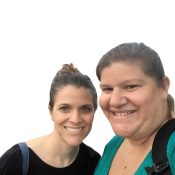
KRISTA LAMBERT & MELANIE MEYERS
Krista and Mel went to a conference and learned a bunch of stuff!


DANIELLA SIEUKARAN
Read about Daniella’s experience facilitating a course keeping day with the Emergency Management Division.


DARCYE LOVSIN
Daryce shares how the library plays a part in the course development process.
Goodies from CTLI
Official Hub Playlist
The soundtrack “Course Design?”. Brought to you by the musical stylings of CTLI. Enjoy!
Voices from JIBC: IDs Edition
We asked our fellow instructional designers and course developers around the institute: “What resources would you recommend to people starting a course design process?” Below are their recommendations.
 Division/Program: Fire and Safety Division
Division/Program: Fire and Safety Division
Role: Program Manager, Fire Officer & Fire Prevention Officer
Recommended course design resource:
Brennan, J., and Downing, S. (2019). On Course: Strategies for Creating Success in College, Career, and Life. 9th Edition. Wadsworth Publishing
What makes you recommend it:
The book doesn’t focus on curriculum design specifically, but it reminds me to keep the learners in mind when creating or revising curriculum. The insights into limiting and outdated beliefs learners may be dealing with motivates me to do what I can to ensure the curriculum and instructor resources include strategies to engage, encourage and support the learners.
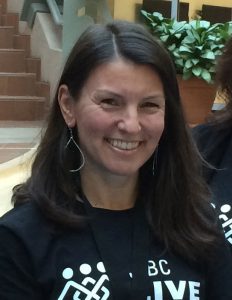 Division/Program: Youth Justice – Corrections/Law Enforcement Studies
Division/Program: Youth Justice – Corrections/Law Enforcement Studies
Role: Program Manager/Instructor
Recommended course design resource:
Everything offered by BCcampus!
What makes you recommend it:
The Facilitating Learning Online (FLO) Micro-courses have been my go to over the past two years to learn different ways of offering curriculum in a virtual world. I have learned so much from attending these courses from the topic being introduced to watching the facilitators and how they use technology.
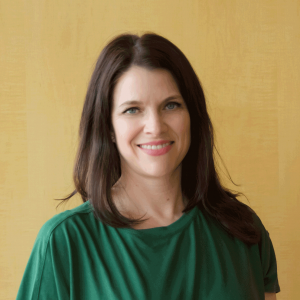 Division/Program: Centre for Teaching, Learning & Innovation
Division/Program: Centre for Teaching, Learning & Innovation
Role: Program Director
Recommended course design resource:
A Comprehensive Guide to Applying Universal Design for Learning
By Dr. Seanna Takacs, Junsong Zhang, Helen Lee, Lynn Truong and Dave Smulders
What makes you recommend it:
As instructional designers, Universal Design for Learning (UDL) is at the forefront of our minds as we create learning resources that are learner-centered, accessible and inclusive. This open guide is a wonderful foundation for UDL written by our own CTLI staff! Anything and everything you would like to know about getting started with UDL in your course design is in this guide from the basics of UDL to learning strategies and assessments.
 Division/Program: Conflict Resolution
Division/Program: Conflict Resolution
Role: Program Director/Instructor
Recommended course design resource:
What makes you recommend it:
This was something that we created in Fire & Safety Division (FSD) and I’ve changed slightly for CSJD. Not sure if this is useful! There are two references in there as well that might be helpful for others. The table was adapted and modified from Emergency Management Division (EMD).
Division/Program: Centre for Teaching, Learning & Innovation
Role: Instructional Designer
Recommended course design resource:
What makes you recommend it:
This is a wonderful resource of faculty stories about teaching and learning in colleges. The stories are practical, accessible and relatable. They focus on the pedagogy that shapes teaching and learning and include reflection on teaching practices. There are so many great stories – I recommend reading the whole book! But you can also pick and choose stories to dive into.
Division/Program: Fire and Safety Division
Role: Instructional Designer
Recommended course design:
Moore, C. (2017). Map it: The hands-on guide to strategic training design. Montesa Press.
What makes you recommend it:
The action mapping process described in this book is something that I have incorporated into my practice as an ID. It has repeatedly and without fail, proven to visually illustrate where information dumps exist in course redesign projects.
Division/Program: Police Academy
Role: Instructional Designer
Recommended course design resource:
Antoine, A., Mason, R., Mason, R., Palahicky, S. & Rodriguez de France, C. (2018). Pulling Together: A Guide for Curriculum Developers. Victoria, BC: BCcampus.
UBCx: IndEdu200x. Reconciliation Through Indigenous Education. edX online course.
First Peoples Principles of Learning. First Nations Education Steering Committee. 2006
What makes you recommend it:
Pulling Together: A Guide for Curriculum Developers is a very comprehensive, open access guide specifically focusing on post-secondary education. It encompasses a full range of topics including basic definitions, incorporating Indigenous epistemologies and pedagogies, engaging with Indigenous communities, and promoting systemic change in post-secondary institutions.
Reconciliation Through Indigenous Education is a great online course developed at UBC. It is aimed at advancing reconciliation in classrooms, organizations, and communities through the teaching and learning of Indigenous ways of knowing. The focus is broader than post-secondary education. However, it contains a wealth of frameworks and specific suggestions for educators. I also found the references introduced in each section extremely helpful.
This course is instructor-paced and is currently archived. However, most of the non-interactive content is accessible throughout the year.
First Peoples Principles of Learning is a single-page poster describing a set of learning principles specific to First Peoples. The First Peoples Principles of Learning were articulated by Indigenous Elders, scholars and knowledge keepers to guide the development of the curriculum and teaching of the the English First Peoples course created by the BC Ministry of Education and First Nations Education Steering Committee in 2006/2007.
While very condensed, I found this resource extremely helpful as it provides a holistic insight into how Indigenous pedagogies are different from the Western tradition.
Division/Program: EMD
Role: Coordinator/ Instructional Designer EMD
Recommended course design resource:
- Dirksen, J. (2016). Design for how people learn. 2nd Edition. New Riders.
- Shank, P. (2017). Practice and Feedback for Deeper Learning. Learning Peaks.
What makes you recommend it:
Design for how people learn is accessible, well organized and a very good resources especially for those new or occasionally engaged in curriculum development. Low on the jargon and with good visual aids, examples and ideas.
Practice and Feedback for Deeper Learning is clear, varied and research-based strategies for developing learner opportunities for deeper learning and outcomes. She explore the job context, self-direction, practice for transfer, effective feedback and retrieval practice. Includes well organized and robust reference list. is clear, varied and research-based strategies for developing learner opportunities for deeper learning and outcomes. She explore the job context, self-direction, practice for transfer, effective feedback and retrieval practice. Includes well organized and robust reference list.
Division/Program: Emergency Management Division
Role: Instructional Designer/Coordinator
Recommended course design resource:
Quick Reference Guide for writing copyright attributions
Authored by yours truly 😊 with guidance from Christine Louise (JIBC Library)Emergency Management Division’s Curriculum and Program Development Work Plan
Our official work plan template, authored by Sarah Wareing.
What makes you recommend it:
Including correct copyright attributions for images and videos can be confusing! The Quick Reference Guide for writing copyright attributions summarizes all you need to know!
The EMD Curriculum and Program Development Work Plan is a comprehensive list of every task you need to complete when developing or redeveloping a course. For each course I work on, I use a pared down version of this workplan to create a Gantt chart in Excel, customizing it specifically to the course I am working on.
Division/Program: Office of Indigenization
Role: Coordinator
Recommended course design resource:
Sanderson, J. (2010). Culture brings meaning to adult learning: A Medicine Wheel approach to program planning. Pimatisiwin: A Journal of Aboriginal and Indigenous Community Health 8(1). Pp. 33-54.
What makes you recommend it:
Indigenizing post-secondary education requires the application of Indigenous cultural knowledges and is more genuine when applied during program development. This resource offers an entry point for educators to use Medicine Wheel Teachings as one Indigenous framework to conceptualize and create programming that prioritizes equity, holism, wellbeing, identity, and community.
Heather also offered up a bunch of other useful resources worth our attention:
- Carter, M., Cassidy, E, Mihalicz, M., Pobuda, T. (2020). Into the Longhouse, around the Medicine Wheel. Pressbooks.
- LaFever, Marcella (2016) Switching from Bloom to the Medicine Wheel: creating learning outcomes that support Indigenous ways of knowing in post-secondary education, Intercultural Education, 27:5, 409-424, DOI: 10.1080/14675986.2016.1240496
- LaFever, Marcella (2017). Using the Medicine Wheel for Curriculum Design in Intercultural Communication: Rethinking Learning Outcomes.
- Bell, Nicole (2014). Teaching by the Medicine Wheel: An Anishinaabe framework for Indigenous education. EDCan Network.
Division/Program: Centre for Teaching, Learning & Innovation
Role: Program Manager, Faculty Development/Instructional Designer
Recommended course design resource:
Roundabout Design by Flower Darby
What makes you recommend it:
“Teaching a great online class requires more than an understanding of pedagogical strategies powered by technology. It requires a cohesive course design that enables all of our students to learn and succeed….”
Darby offers a different way of looking at course design, less of a straightforward linear process and more like a roundabout with jumping on and off points. Much more responsive to ongoing course design actions.
 Division/Program: Police Academy
Division/Program: Police Academy
Role: Program Manager/Curriculum Developer
Recommended course design resource:
- Create Curriculum Map, by Texas A&M University
What makes you recommend it:
There are many examples of curriculum mapping available online, to use depending on your ultimate purpose for the map. This site reminds us that curriculum mapping links directly to program design. The map will not only show where curriculum exists, it also allows you to “see” why it is there. From this vantage point, you can also “see” where curriculum may be missing.
Sharing is Caring
We love to share! Here at CTLI we love to explore new tools as we work through our projects. Some fall flat, some are meh and others shine and become integrated into our daily work lives and processes. Below are a few of the teams favourites, used for course planning, design and development. Enjoy!
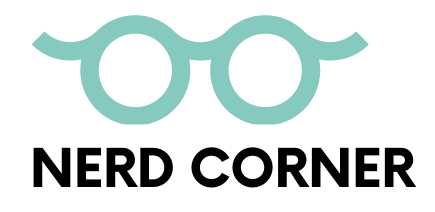
Design and Development
Here are a few of our favourite go-to websites that our team uses when searching for assets during development. The websites range from stock images, graphics (2D and 3D), illustrations, icons and more.
- Noun Project
- Unsplash
- Pexels
- Envato Elements
- Pixabay
- Common Craft
- Openverse (formally known as Creative Commons Search)
- LottieFiles
- Scale by Flexible
- Flaticon
Strategic Planning and Facilitation
Listed below are the three top web-based platforms our team loooooves to use for our planning and facilitation meetings and workshops. They’re GREAT! You can try the free versions (jam board is a google product so extra free) before you sign up for a paid account.
Save the Date
JULY 18 - JULY 24, 2022
FLO MicroCourse: Considerations to Indigenize Your Work
12:00 NOON PST (60 minutes)
In this course you will explore how you might reframe Indigenous pedagogies in online (and face-to-face) environments, including encouraging participation and creating relationships. Please put aside an average of two hours per day to become acquainted with the materials and contribute to your overall advancement as well as that of the group.
This MicroCourse has a non-refundable registration fee of $25.
WEDNESDAY, JULY 27, 2022
Facilitating Learning Online (FLO) Course: SPLOTapalooza!
9:00 AM - 12:00 NOON PST
Explore using SPLOTs to share learning objects, deepen understanding, and build learning community.
Facilitated by Alan Levine and Jessica Motherwell McFarlane, PhD.
This event is free. To ensure we have an inclusive and welcoming environment for all, we’ve added registration to all our sessions.
OCTOBER, 2022
DEMOFEST@JIBC
We are bringing back this tradition at JIBC for everyone in our community and beyond to see what we’re up to, what we’ve created recently, and what we think is worth sharing. We are currently in the early planning stages for this event, which will be held sometime in October 2022. Our plan is to make this event work for both online and on-site audiences.
We are looking for suggestions about what to showcase from around the Institute. Have you been part of a course or project that you’d like others to see? This is your chance!
Questions? Email us for more info: ctli@jibc.ca
Call for contributors:
Do you enjoy reading the Learning Hub? Do you have any great ideas or advice for our upcoming issues? Reach out to our team, we’d love to hear from you and maybe you could be featured in a future Hub!
The Learning Hub is a production of the good folks at the Centre for Teaching, Learning, and Innovation. We welcome ideas and suggestions for edition themes and ideas for articles. Contact us at ctli@jibc.ca.








